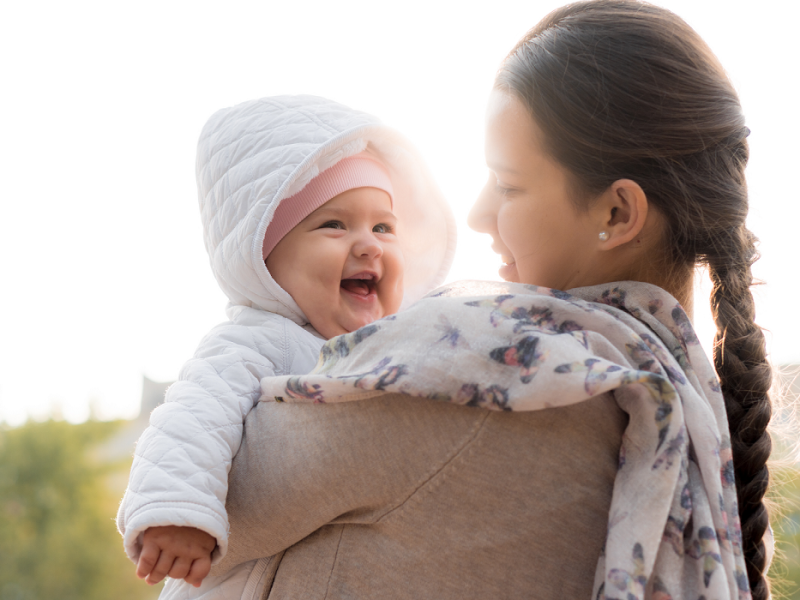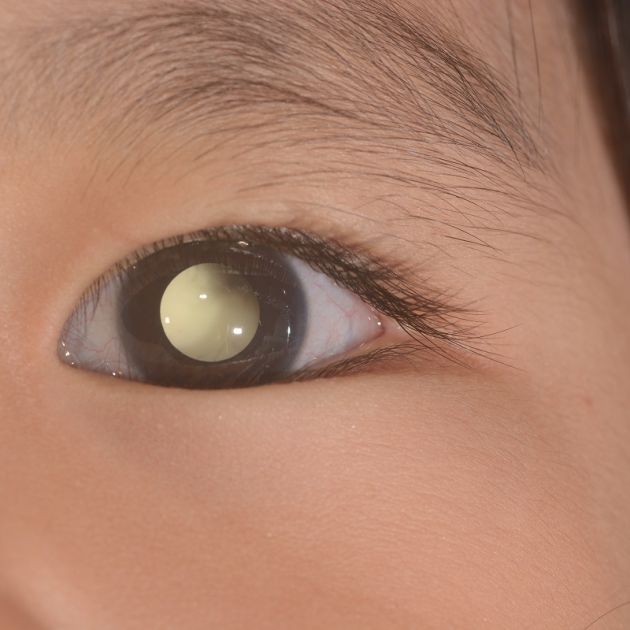Retinoblastoma awareness: the facts, the signs and the treatment
May 10, 2021 in Eye Care

Retinoblastoma is a rare type of eye cancer that can affect young children, usually under the age of six. There are around 45 cases of retinoblastoma diagnosed every year in the UK.
What is retinoblastoma?
Retinoblastoma is found in the retina (the back of the eye) and while there are some key signs, it can only be fully diagnosed by an ophthalmologist (an eye specialist at the hospital).
One of the most common signs of this rare cancer is a ‘white reflective eye’. You may notice that in cases of retinoblastoma, the child’s eye seems to have a white hue or reflect light in photographs.
Other signs include redness, lack of focus or poor vision, a change in colour of the iris and/or where the affected eye turns away from the centre.
As a family run opticians, we understand the importance of protecting your family’s overall health. If you notice any changes in your child’s eye or vision you should contact your local Leightons practice for an Ultimate Eye Examination and access the best possible care and advice.
All aspects of the Ultimate Eye Examination, including OCT and Optomap, are completely safe and painless for children of all ages. We recommend children have their first eye test from around the age of three. Your optometrist will be able to examine your child’s eyes and will offer advice and refer you to a hospital specialist, if required.

When does it occur?
Retinoblastoma develops from immature cells of the retina and it is almost exclusively found in young children, under the age of six. Early diagnosis is vital to saving a child’s sight, eyes and life. Our optometrists are fully trained to identify, advise and carry out hospital referrals, if required, to ensure that you are in the safest possible hands.
In 40%* of cases, retinoblastoma is caused by a mutation of genes found in chromosomes that affect the way cells grow and develop within the body. The defective gene can be inherited from either parent and usually results in both eyes being affected.
It is not yet known what causes the other 60%* of cases. In these patients, there is no faulty gene and only one eye is affected, rather than both.
Is there a cure or treatment for retinoblastoma?
When diagnosed early, retinoblastoma can often be successfully treated. More than 90% children with the condition are cured**.
Your optometrist will be able to answer any questions you have and refer you to a hospital specialist, if required. At the hospital, the opthamologist will be able to give you a full diagnosis and options for treatment.
When treating a small tumour contained within the eye, there are two alternative options to eliminate it:
laser eye surgery (photocoagulation or thermotherapy) freezing the tumour (cryotherapy)
Both options are carried out under anaesthetic, so your child will be unconscious and won’t feel any pain or discomfort during the procedure.
In rare cases, if the cancer has spread beyond the eye, there are other options available including chemotherapy and, in extreme circumstances, removing the affected eye.
Does retinoblastoma result in sight loss?
Usually, patients with retinoblastoma may have a reduced vision in the affected eye(s). Your optometrist will be able to talk you through your child’s latest prescription and explain their level of eyesight to you.
If hospital treatment is needed, your child’s clinical team will discuss any possible side effects with you and do everything they can to ensure your child retains the best possible eyesight.
In the rare cases when a hospital recommends that your child has one of their eyes removed, the sight in their other eye is rarely affected. Rest assured, children who lose sight in one eye usually adapt quickly to using their other eye.
Book an appointment today
Above all else, if you think your child may be displaying signs of retinoblastoma, book an Ultimate Eye Examination at your nearest Leightons practice as soon as possible or contact your GP for an emergency appointment.
Our specialists are ready and available to advise on cases of retinoblastoma and the best care and advice. At the moment, we are open by appointment only, with the safety of our patients and practice teams as our top priority.
For further reading, we recommend Childhood Eye Cancer Trust (CHECT) can give you further information about retinoblastoma.
* NHS on Retinoblastoma: https://www.nhs.uk/conditions/retinoblastoma
** Child Eye Cancer Trust: https://chect.org.uk/about-retinoblastoma-2

